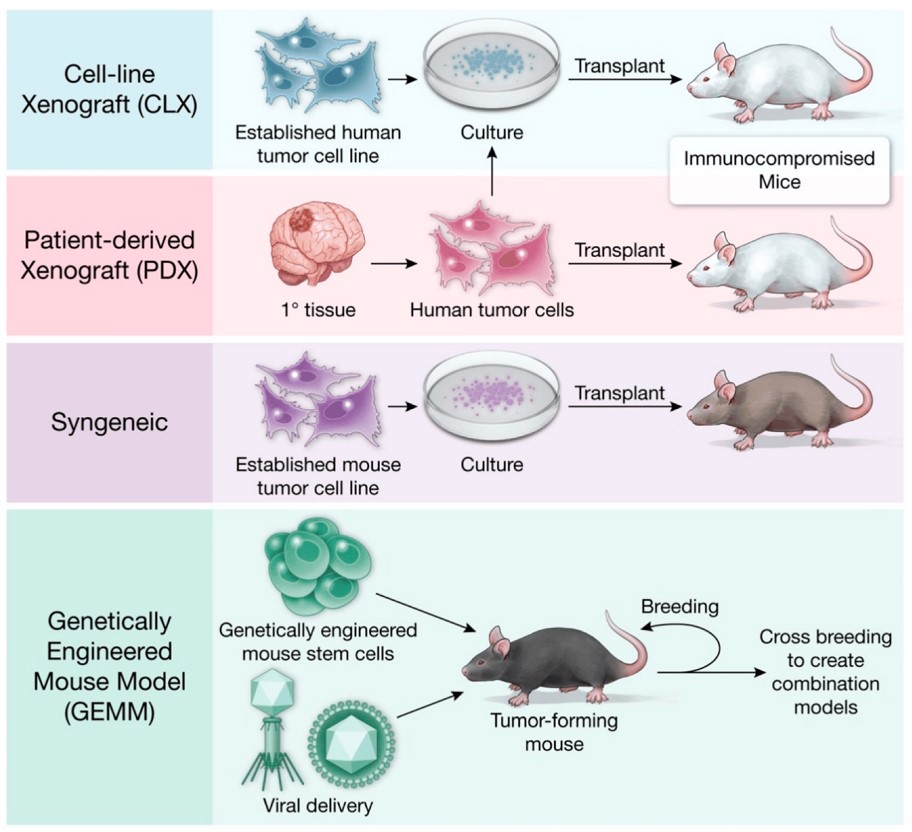All products and services are For Research Use Only and CANNOT be used in the treatment or diagnosis of disease.
Animal cells serve as important cell tools in biomedical research. Researchers can utilize animal cells as models for human systems to study various disease mechanisms and evaluate new therapies in animal models. This allows them to gather valuable insights before applying the findings to humans. Mice play a crucial role as models for studying both normal and pathological processes in humans. The advantages of this model include its affordability, rapid reproduction, and close genetic resemblance to humans. Cells from mice possess a wide range of benefits and are a powerful tool for scientists to investigate the development of diseases. The use of mouse cells is seeing a notable rise.
 Fig.1 A large-scale process for mouse genome mutagenesis.1
Fig.1 A large-scale process for mouse genome mutagenesis.1
Isolation of Mouse Cells
Generally, mouse cell isolation involves several key steps, such as digestion, extraction, purification, viability test, and cell culture. It is important to be mindful of preventing bacterial contamination during the operation. Here, we will utilize the purification of T cells from mouse spleen as an example. Initially, euthanasia mice follow the institutional protocols. After washing, filtering, dilacerating, centrifuging, lysing, and culturing, gather the spleen. Following splenic cell harvesting, T cells are purified in accordance with the mouse T cell isolation kit for internal usage inside the organization and characterized by flow cytometry using particular markers. The fundamental operational concept behind the separation of primary cells from various tissues is generally consistent but with variations in the specific procedural methods used.
Benefits of Mouse Cells
In summary, the utilization of mouse cells allows for the simulation of the human environment, leading to more precise research findings and valuable contributions to scientific research and clinical medicine.
Mouse Cells at Creative Biolabs
In order to cater to the demands of our global customers, Creative Biolabs offers a diverse range of readily used mouse cell products that have undergone rigorous quality assurance measures. Our diverse range of mouse cells at Creative Biolabs is perfectly suited to your research requirements. Feel free to contact us at any time to inquire for more information about our products.
Reference
 NEWSLETTER
NEWSLETTER
The latest newsletter to introduce the latest breaking information, our site updates, field and other scientific news, important events, and insights from industry leaders
LEARN MORE NEWSLETTER NEW SOLUTION
NEW SOLUTION
CellRapeutics™ In Vivo Cell Engineering: One-stop in vivo T/B/NK cell and macrophage engineering services covering vectors construction to function verification.
LEARN MORE SOLUTION NOVEL TECHNOLOGY
NOVEL TECHNOLOGY
Silence™ CAR-T Cell: A novel platform to enhance CAR-T cell immunotherapy by combining RNAi technology to suppress genes that may impede CAR functionality.
LEARN MORE NOVEL TECHNOLOGY NEW SOLUTION
NEW SOLUTION
Canine CAR-T Therapy Development: From early target discovery, CAR design and construction, cell culture, and transfection, to in vitro and in vivo function validation.
LEARN MORE SOLUTION